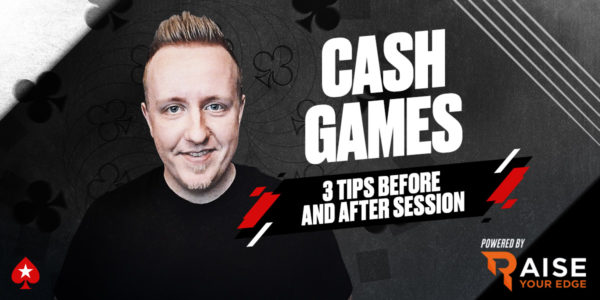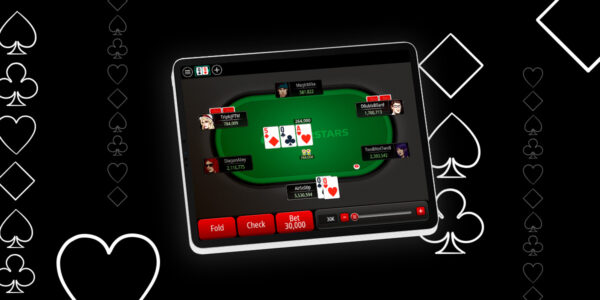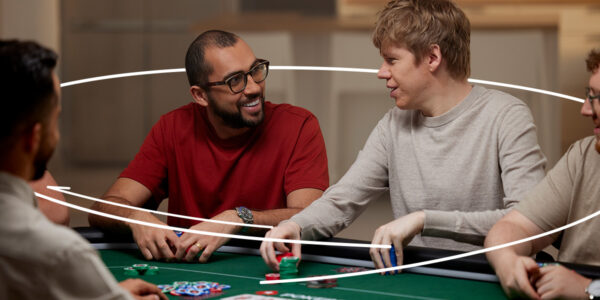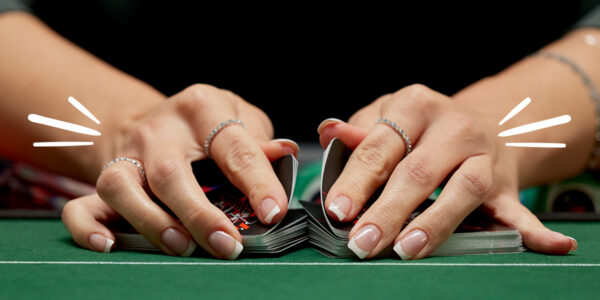Tips for Being Proactive in Tournaments
In my last article titled “Relying on Luck in Tournaments”, we talked about two forms of gambling in tournaments. We briefly touched on the one everyone knows, the loose button clicking splashers who routinely leak chips and punt stacks. And then we dove into the lessor known, but just as gambling strategy of simply nitting it up waiting for big starting hands and blinding yourself off in the process. We also dropped a teaser about future topics being how to take your fate into your own hands and find ways to accumulate chips without premium starters. So I’d be remiss not to follow that up with a few tips on how to do that. This is certainly not an all-inclusive list, but it’s a place to start. I will try to provide a few tips here that should be easy to follow and start working into your game, from the perspective of a player who has not really done much of these things in the past.
Deep Effective Stack Speculation
Most players, even the super tight players, already do this. Early in tournaments when the effective stacks are very large, there is more room for seeing flops inexpensively looking to hit a strong hand or draw. This is better served in multiway limped or single raised pots, thus most of these plays should be done from late position or out of the blinds, where you already are reasonably sure about who and how many will be involved, and the price to take a look. And of course this doesn’t mean we should play random trash on the button with a few limpers in front… but small pairs, suited aces and kings, and suited connectors or one-gappers can make nice speculations that can hit some strong flops.

Isolating Weak Players
One of the things we should be trying to do at the tables is identify who the stronger players are vs. who the weaker players are. And it should go without saying, we’d like to play pots with the weaker players whenever possible. Once we’ve identified a weaker player, we can look to isolate them when the opportunity arises. This may arise when the weaker player has either limped in or opened for a raise, and no one else is in the pot yet. It may arise when the weak player is in the blind and no one’s yet entered. If you have any playable hand, ask yourself if it might be possible to isolate the weak player with a raise or re-raise. If it’s early in the tournament with deep stacks, you could even raise big. Conventional advice you may hear for deep stacks is 3 big blinds + 1 for the limper. Don’t be afraid to break the mold on that. Sometimes isolation won’t be a realistic goal. And sometimes it is, but will require more of push. What if you make it something crazy like 8x? Most players will look at you incredulously, shake their heads, and fold all but their strongest holdings. Who calls 8x in an unraised pot anyway? Typically, it’s the weakest player(s) at the table, that’s who.
Identifying Folders
Since we will need to find pots to win without cards, we’re naturally going to need our opponents to fold to accomplish that. Obviously, everyone folds when they have nothing with no prospects. Some players fold a lot more though. They fold gut shots instead of floating with them. They fold pairs in the face of overcards. They fold facing aggression without a strong hand, and they politely fold when they miss the flop. These are great players to target with some of our more marginal holdings in our range. They are susceptible to bluffs, and will communicate clearly through their actions when they hit a hand. Since it’s hard to make a hand, they’ll be yielding more than they really should. Someone’s going to get those chips they abandon… make sure you get your turn at them.

Seizing Initiative
There are certainly times when calling is the optimal play, and players who stick rigidly to a “raise or fold” mantra miss these opportunities. But any time you’re considering calling, ask yourself instead if a raise might perform better. By seizing the betting initiative in a hand, good things can happen. We start building a pot for when we make a good hand. And we put ourselves in the driver’s seat for when no one has much of anything. These pots were no one has much happen a lot, and the spoils typically end up going to the aggressor when everyone else folds. These spots are not always obvious to newer players. For example, let’s say it folds to the cut off and they open for a raise to 2.5x. We’ve observed this player likes to open frequently, especially in late position. We saw them earlier open from early position with A3s and from middle position with J8o. How wide do you think their cut off opening range is? Now we are facing this raise on the button with JTs. This is an attractive hand and people like to call with it. While we can likely call profitably in this spot, consider what happens if we choose to seize the initiative and 3-bet to a nice healthy 9.5x. The blinds will have a tough time continuing with anything but premiums. After they fold, the cut off is now in a horrible spot. They’re caught with their way-too-wide opening range, facing a sizable 3-bet out of position. They simply cannot defend this range properly. They are forced to either fold too much, which allows is to win immediately with jack high, or they will call too much, which takes them to the flop out of position, without the initiative, and a weaker range that most likely doesn’t include QQ+/AK too often as they would 4-bet those a lot. Of course this play won’t always work out, no play will… but we have now manufactured a fantastic situation where over time we’ll be printing money at a huge rate. Did I mention we have jack high?
By looking for opportunities to accumulate chips without premium starting hands, we can try to build stacks on our own terms, rather than simply gambling, hoping we get those big hands and they hold up and placing our fate in random cards that turn. Start with these 4 basic tips, and think about how you might expand on them to do even more. It will start to transform your game from a gambler into a player, from a fish into a shark.
Condimentum Nibh
Donec sed odio dui. Cras mattis consectetur purus sit amet fermentum. Vestibulum id ligula porta felis euismod semper. Curabitur blandit tempus porttitor.












